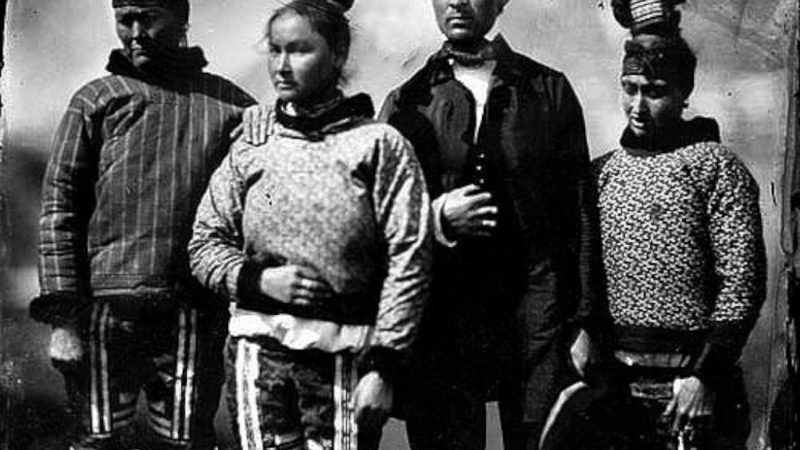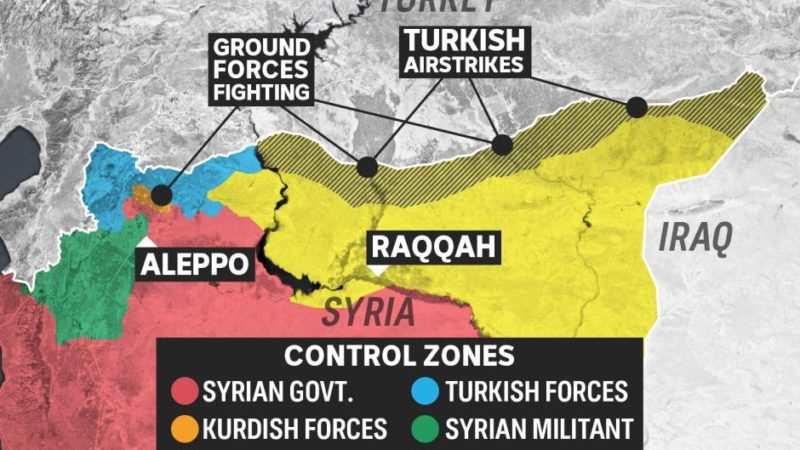Hong Kong Protest News – Top Headlines & Reactions

The protests in Hong Kong are ongoing, and Larry Sharpe, Siobhán Patricia Lynch (“Trish”), and Edward Hoefer gave their reactions to the top five headlines. Here’s what they said, with minor edits:
CNN: Hong Kong’s leader warns US and other countries not to interfere in protests
Trish: I kind of have to agree with this. This is something that Hong Kong has to work out for themselves. With China, one of the things that we all know is that China doesn’t exactly have the best human rights history. However I’m pretty sure that the last thing the US needs is a war with China. That would literally start World War three. Everybody has their eyes on Hong Kong. I think that if China moved in and did something really bad, World War three would start anyway. But right now, it’s really something that they have to deal with for themselves.
Edward: That’s a pretty interesting idea. I don’t think that anyone’s all that interested in interfering now. Everybody’s giving their opinion, but for China to come out and say “nobody interfere” makes me feel like they kind of got their backs against the wall, and they don’t know how to get out of it. I don’t think the protesters are going to win, but I don’t know how Beijing’s going to really win either. I think it’s just going to continue to be this long, festering problem without much of a resolution.
Larry: China’s government’s warning is simply a way of them validating their bad behavior, so if someone does step in, they can fight back and say “see we warned you.” That’s all that is. In reality, Hong Kong’s in trouble. It’s part of China. They’re not going to win. China’s going to win eventually. It’s just a matter of time. Hong Kong was screwed the second that the Brits decided they were going to agree and give it back. That what the game was, however many of them believe it’s not over, but it’s already over. Fighting this is a waste of our time and energy. Good luck to Hong Kong. I hope what happens Spurs other parts of the country, and I hope China becomes better for it in the future.
The Atlantic: The End of Hong Kong as We Know It
Trish: I almost have to agree. What’s been said so far is that Hong Kong existed in this sort of free economic zone. I can’t remember the exact wording, but it has free economic zone status because it was such an economic center. But with this and the reactions to it, I think that Hong Kong is going to suffer because of it. It’s not going to be the same areas in a city or country that it was before, and it’s largely going to be because the Chinese will react badly to this.
Edward: It’s pretty interesting. I think the headline could apply just about any time to any city. Everything as we know it is constantly changing now. I think Hong Kong is in for a rough time, but a lot of the protesters have snuck across the border from the mainland. So, I think Hong Kong is kind of the voice of China right now. If it does get subsumed into the mainland and they crack down really hard, they’re basically just bringing all of these ideas in closer to their chest. Twenty or thirty years down the line, I think Hong Kong may be responsible for transforming China. But right now Hong Kong is in a bad spot. The people in Hong Kong are not going to win this, but they might sow the seeds for future change.
Larry: I think it is right on the money, while it isn’t the end of Hong Kong. If it’s true, this should hopefully spread to other parts of China and it should also be the end of China as we know it in the long run. Sadly it looks like Hong Kong will probably be a martyr state for the rest of China.
New York Times: She’s a Hong Kong Protester. Her Husband Is a Cop. It’s Complicated.
Trish: Wow. Relationships are complicated. In general, I think in that particular case it’s love trumps all. It’s kind of weird and I think it puts these adults in a bad position because the government itself generally is pretty suspicious of people who are fraternizing with the enemy. I think that he’s kind of in a bad position in that regard, and he may be asked to do things that harm his wife. I think that would be a very scary situation for both of them.
Edward: I think that just goes to show that labels don’t mean much. They certainly have some way to make this relationship work, and I think it’s good. I think that’s actually a good sign. You’ve got a cop and a protester living together. They are ostensibly on opposite sides of the fence. It’s an illustration that even though there’s this tension, hopefully they can make their relationship work. If they can make their relationship work, then maybe China and Hong Kong can make their relationship work without unnecessary suffering.
Larry: It’s a good thing, because the reality of it is governments need people in uniform to enforce their will upon the people. They require them. Once the people in uniform decide “you know what, I’m not so sure about this” which hopefully will happen, then all of a sudden their will may begin to go away. One of the issues we had back in 1989 was Tiananmen Square. I happened to be off the coast of China at the time, close to Korea and they had actually decided to slow us down because we thought that Tiananmen Square might become a massive revolution. Obviously it didn’t but at that point, we didn’t know. So as Marines we were actually off the coast waiting in case we had to go in and get Americans out. We actually actually had our our fleet just sitting out there, waiting to see what happened. I don’t know if this is true but we were told that the Chinese didn’t react because many of the people locally were afraid that local Chinese units wouldn’t act. So they had to go up and get foreign units to come in to suppress the oppressors. The idea was they took Mongolians, because Mongolians wouldn’t care about Han Chinese. They run them over for attitude. That was the concept, and they would shoot them if they had to. So whether that’s true or not, I don’t know, but the idea is true that if the people in uniform won’t carry out the orders, the government will fail. The fact that we have people in uniform who might decide not to arrest somebody because of their wife, or brother, or sister, or cousin, that’s a good thing. It’s a good sign.
Reuters: Hong Kong protesters boo Chinese anthem, as leader warns against interference
Trish: Again, we’re kind of seeing an expression of liberties that China doesn’t normally express. Booing the anthem is a clear indication that they disapprove of the government. I’m pretty sure that, in the short term Hong Kong’s going to lose this battle. But I think the expression of liberty has the potential to spread. Hong Kong’s been in this position where they’ve generally had more liberties. They’re not going to give it up that easily and in this type of protest, those types of expressions are very poignant.
Edward: I think it goes to the heart of the entire protest. The protesters booing the Chinese national anthem is very provocative to Beijing and is inviting a violent crackdown, which I think everybody knows at this point is unlikely to happen. So they’re creating this tension. When Beijing eventually wins the fight with Hong Kong, what the protesters are doing right now could damage China’s reputation abroad and invite sanctions and unfavorable trade relations. This could hurt China in the long term. It’s complicated. It’s hard to say what the medium-range is going to be, but it looks like the protesters are trying to hit Beijing where it hurts the most.
Larry: It’s a big symbol. It says we don’t want to be Chinese, or China is bad and you don’t do that to the Chinese government. For most Chinese, in their hearts China is a very old culture. The government representing that is the idea of a heavenly mandate. The heavens decide who rules China. That’s still part of their culture, even though every individual Chinese person may not believe that. But it’s still part of their culture so that’s why they don’t want to boo the anthem, or boo anything that’s part of the government. This is why it’s so poignant, which is why it lands so hard. In certain countries, this wouldn’t matter. It’s letting them know, “hey we’re serious. Just because you’re China’s government doesn’t mean you’re right.” This is a huge deal in a Confucian society and a culture that has this past.
South China Morning Post: Hong Kong protests and US trade war no longer China’s top priorities as spiralling pork prices dominate agenda
Trish: This seems a little complicated to me. I guess the Chinese eat a lot of pork, so that would be an issue. If prices went up, then they wouldn’t have any. If it’s because of any of this unrest in Hong Kong, or the trade war with the US, or anything like that… I’m not really familiar with what direction pork flows to be perfectly honest, so I can’t make an educated guess here. But if food prices are going up, then that creates hardship for many people. That would be a concern of the Chinese government.
Edward: I think it’s a little more subtle than the other ones. I think what it shows is that President Xi of China and the government of China actually do care about the people. In places outside of China, it’s easy to paint their government as just totalitarian and unfeeling and willing to do whatever is necessary to maintain order. But a headline like this shows that they really do care and they really do want a good solution. Now we may disagree with the solution that they want to implement, but the idea that the government there actually does care and wants to come up with a solution that will satisfy everybody, it gives me hope. Not that they’ll find that solution but that they want to find the solution.
Larry: I’m not sure it’s that big of a deal to be forward. The Chinese government is okay with oppression. It’s clear it’s okay with making people wait, and punishing its population. It’s clear it’s okay with arresting people because they’re angry. This is a government that isn’t that concerned. I think this is more hope for the people who are protesting than a real issue the government cares about. If we go to a trade war with China or whatever the case may be… I’ve lived in China for a short time. I know some people who are from China and many of them feel the same way: “we’ve been here for 5000 years.” For the amount of time they’ve been around, they’ll be here for 5,000 more. I’m paraphrasing, obviously, but that’s more of a feeling that they’re okay putting up with a lot because that’s what they do. I’m not sure that the government is really concerned at all.
What Are Your Thoughts About Hong Kong?
Tell us in the comments below, or watch the video for real-time responses from each of the participants in this set of reactions.





Facebook Comments